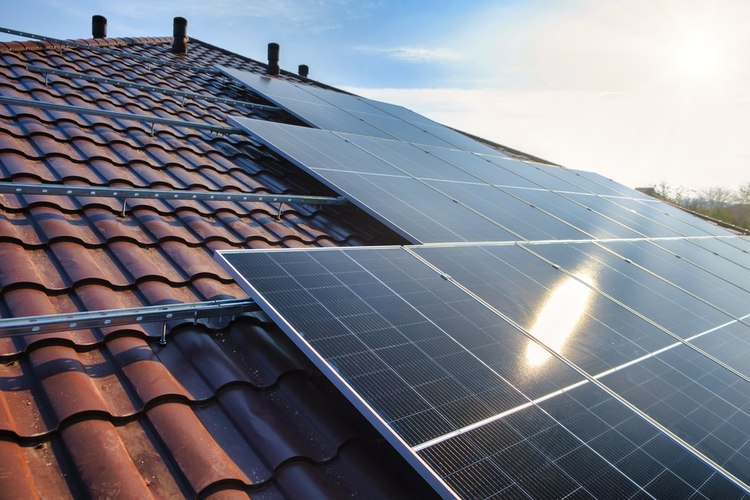Solar-Powered Air Conditioning: Cooling Your Home Sustainably
As temperatures rise and energy costs soar, homeowners are increasingly looking for efficient and eco-friendly ways to keep their homes cool. Solar-powered air conditioning presents an innovative solution that combines the power of renewable energy with modern cooling technology. This article explores how solar air conditioners work, their benefits, and what to consider when thinking about installing one in your home.

During peak sunlight hours, solar air conditioners can operate entirely on solar energy, significantly reducing your reliance on the grid. This is particularly beneficial during hot summer days when electricity demand – and often prices – are at their highest. Even on cloudy days, many systems can still generate enough power to at least partially run the air conditioner, supplementing with grid electricity as needed.
What are the benefits of solar air conditioning for homeowners?
The advantages of solar-powered air conditioning extend beyond just cooling your home. One of the most significant benefits is the potential for substantial energy savings. By using free solar energy to power your air conditioner, you can dramatically reduce your electricity bills, especially during the summer months when cooling costs typically skyrocket.
Moreover, solar air conditioning systems contribute to a greener home environment. By reducing your reliance on grid electricity, which often comes from fossil fuel sources, you’re lowering your carbon footprint. This makes solar air conditioning an attractive option for environmentally conscious homeowners looking to reduce their impact on the planet.
Another advantage is the potential increase in home value. As energy efficiency becomes increasingly important to homebuyers, solar-powered systems, including air conditioning, can make your property more attractive in the real estate market.
Are solar air conditioners suitable for all homes?
While solar air conditioning offers many benefits, its suitability depends on several factors. The most crucial consideration is your home’s solar potential. Homes with unobstructed south-facing roofs or ample space for ground-mounted panels are typically ideal candidates for solar installations, including air conditioning systems.
Climate also plays a role in determining suitability. Regions with abundant sunshine year-round will naturally benefit more from solar-powered systems. However, even in areas with less consistent sunlight, modern solar technologies can still make these systems viable, especially when combined with energy storage solutions.
The size and energy efficiency of your home are also important factors. Larger homes or those with poor insulation may require more powerful systems, which in turn necessitate more solar panels. Conducting an energy audit of your home can help determine if upgrades to insulation or other efficiency measures should be considered alongside a solar air conditioning installation.
How do solar air conditioners compare to traditional cooling systems?
When comparing solar air conditioners to traditional systems, several factors come into play. Initial costs for solar systems are typically higher due to the need for solar panels and specialized equipment. However, the long-term savings on energy bills can offset this initial investment over time.
In terms of performance, modern solar air conditioners can match or even exceed the cooling capacity of traditional systems. Many are designed to be highly efficient, using advanced technologies like inverter compressors that adjust power consumption based on cooling needs.
Maintenance requirements for solar air conditioners are generally similar to those of traditional systems, with the addition of periodic cleaning and inspection of the solar panels. However, solar systems often have fewer moving parts, which can lead to increased reliability and potentially lower maintenance costs over time.
What should homeowners consider before investing in solar air conditioning?
Before investing in a solar air conditioning system, homeowners should consider several factors to ensure it’s the right choice for their situation. Here’s a comparison of key considerations:
| Consideration | Solar Air Conditioning | Traditional Air Conditioning |
|---|---|---|
| Initial Cost | Higher upfront investment | Lower initial cost |
| Long-term Savings | Significant energy bill reduction | Ongoing electricity costs |
| Environmental Impact | Lower carbon footprint | Higher carbon footprint |
| Installation Complexity | More complex, requires solar panel setup | Simpler installation process |
| Energy Independence | Reduced reliance on grid electricity | Fully dependent on grid electricity |
| Home Value Impact | Potential increase in property value | Neutral impact on property value |
Prices, rates, or cost estimates mentioned in this article are based on the latest available information but may change over time. Independent research is advised before making financial decisions.
How can homeowners maximize the efficiency of solar air conditioning?
To get the most out of a solar air conditioning system, homeowners can take several steps to maximize efficiency. Proper insulation is crucial, as it helps maintain cooled air inside the home, reducing the workload on the air conditioner. Installing energy-efficient windows and using window coverings can also help keep heat out during the hottest parts of the day.
Smart thermostats can be integrated with solar air conditioning systems to optimize energy use. These devices can learn your preferences and adjust cooling schedules to maximize the use of solar power when it’s most abundant. Additionally, regular maintenance of both the solar panels and the air conditioning unit is essential to ensure peak performance and longevity of the system.
Solar-powered air conditioning represents a significant step towards more sustainable home cooling. While the initial investment may be higher than traditional systems, the long-term benefits in terms of energy savings, reduced environmental impact, and potential increase in home value make it an attractive option for many homeowners. As technology continues to advance and costs decrease, solar air conditioning is likely to become an increasingly popular choice for those looking to cool their homes efficiently and sustainably.






